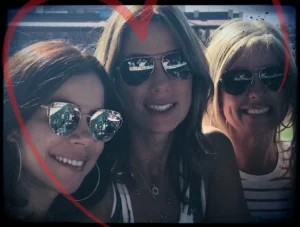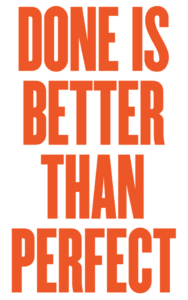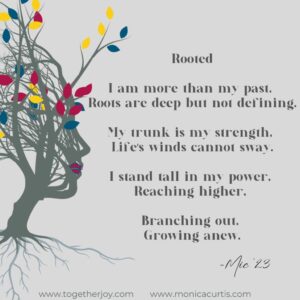Sage Everett is the name I use in my writings when referring to women who do not wish to be known by their truths. Sage symbolizes the many women who suffer in silence. The name Sage Everett represents bravery, wisdom, and healing. And although these women aren’t ready for all to see, I do not doubt that all who hear their stories will know their strength.

Sage
Avoiding eye contact, Sage nests the hot tea in her hands, gently blowing, releasing steam, and muttering, I will be okay. A tear trickles down her cheek. She sets the tea down, leans back, and wipes the tear with her index finger. A single tear is all that she allows her heart to express; she releases a deep sigh and diverts the conversation.
A mutual friend interrupts, and I witness Sage morph. Okay, Optimus Prime, I see you. Sage smiles and engages, ‘Things are great, kids are busy, Jenny made the varsity team.’ I watch as Sage sells her ‘good’ life. The rehearsed answers adequately satisfy our friend. The interaction ends successfully with meaningless and empty dialogue.
I think to myself, that was exceptional acting, friend. Heavens, how many of us are walking around pretending to be okay? Is this standard to wave off feelings, suck it up, put on our big girls’ panties, yet silently grapple with the days of our lives?
I am saddened by Sage; placing on the gladiator armor—preparing for battle alone—I stumbled on her truth; otherwise, I would be the fool, munching up her ‘good life’ B.S. But what’s the alternative? Blurt out problems and advertise on a Jumbotron; hey, everyone, look over here, check out my shit.
Yeah, that’s not happening. But doggone, what about the people in our corner? Why do we keep those who love us at arm’s reach? Why is it so difficult to show one’s hand? To say hard things; I am scared; I need help; I feel lost, overwhelmed, sad; I am …fill in the blanks. Instead, we choose to isolate ourselves and walk an emotional tightrope without safety nets.

The Shoulds
I don’t take Sage’s brush-offs personally; it’s not about me or my feelings. But I sincerely feel her isolation; as a recovering deflector, I have mastered the art of not asking for help. And by a master, I mean I suck. There was a time when I would have rather spent an afternoon scratching my nails on a chalkboard than asking for help.
I vividly remember the day, sitting on the couch in my therapist’s office, a hot, blubbering mess…
MIC: I am on my own, I feel overwhelmed and alone, and I am growing resentful. (She hands me the tissue box) Therapist: Have you told anyone how you are feeling? Have you asked for help? (I look at her as I am blowing my nose) Mic: Well, no, not specifically, but they should know, they know how crazy things have been, they should ask, clearly, they can see something has changed. They should understand better. Therapist: I see (in an even tone of a therapist's voice) So, you are punishing your people for the list of shoulds you created? A list of expectations that you don't even dare to speak to them about. (Long therapist silence followed by a lightbulb moment) Mic: Right, I see. I can't be upset with people who don't show up to my SOS party if I don't send a distress signal. Ah, I am using my 'shoulds' and turning them into criticisms. 'Should' is not my friend. (I think of the many times 'should' has burnt me and made me feel less than or worse, the 'shoulds' that killed relationships) Therapist: Now, let's get to the more pressing issue; why is it so hard for you to use your words and ask for help?

Control
After a deep dive, I learned that there are many reasons people don’t ask for help; most stem from a need to control the narrative.
- Shame
- Embarrassment
- Judgment
- To protect loved ones
- Not wanting to be needy or weak
- Do not feel sorry for me
- Self-reliant
- Lack of trust
- Intimacy issues
- Not wanting to burden anyone
For me, it came down to my upbringing. I grew up fast, and the people I most depended on let me down, propelling my self-reliant ways. I adopted the ‘people can’t disappoint if I fly solo’ mentality. So, I boycotted accepting help and flipped it by becoming an over-giver, a twisted way of thinking: if I take care of others, If I focus on doing for others, I will win their love, and they won’t abandon me—
(Girls, this is me being vulnerable, I tell you, my junk drawer is full of nonsense, I am working on my shit—progress, not perfection)

Don’t tell me- SHOW ME
Sage is fierce; valid or not, she has reasons for keeping things close to her chest. However, one thing remains: we need to do better. Too many are battling in silence, drowning alone in the heaviness of life. We must stop accepting surface answers, peel more layers, and ask more questions. We need to stop telling people we care and show that we care. The best way to gain trust and open the gates of vulnerability is to be the first to unpack our emotional baggage.

If not for us, for them
The burden is on us, mamas; we can’t continue silencing our truths. Here’s the thing, our kiddos are taking it all in, observing and mirroring how we do life. So I ask you, In what world do you want to raise a child to go inward and not express their feelings, fears, and struggles? In what scenario will this serve them? When depression hits, and they can’t get out of bed? When they become overwhelmed with life and decide to end theirs? When life punches them in the face? How do you want them to respond? To armor up and battle alone or to reach out.
How can we expect our children to feel comfortable asking and saying hard things if we are unwilling to do the same? How can we expect them to know the strength that lies in vulnerability if we go around pretending? We are causing harm in our misguided attempt to protect. Perhaps it is time we stop telling our kids how to be and start showing them; it starts with us showing up fully, unapologetically, as we are—and even asking for help.
Xo-Mic






